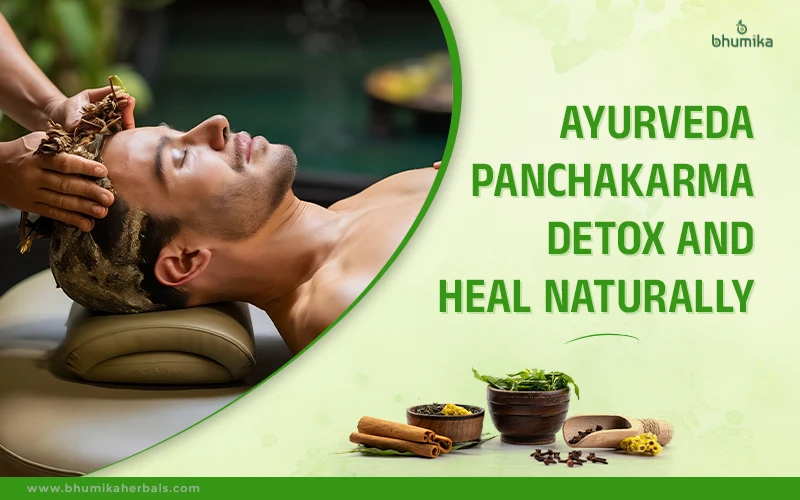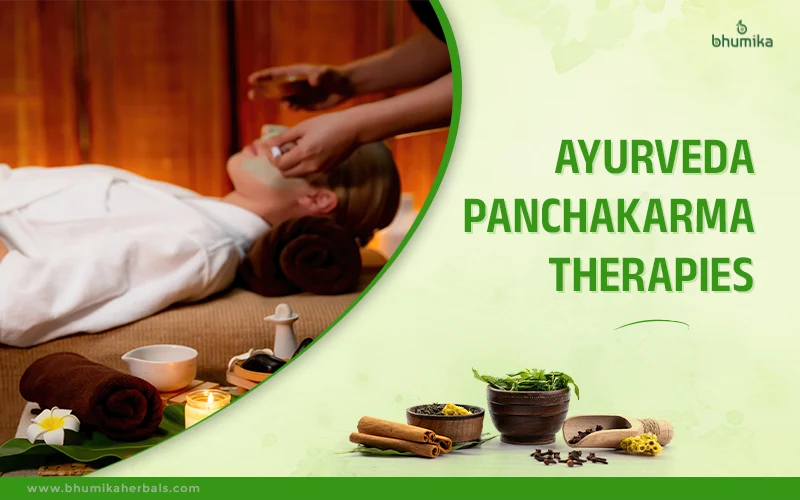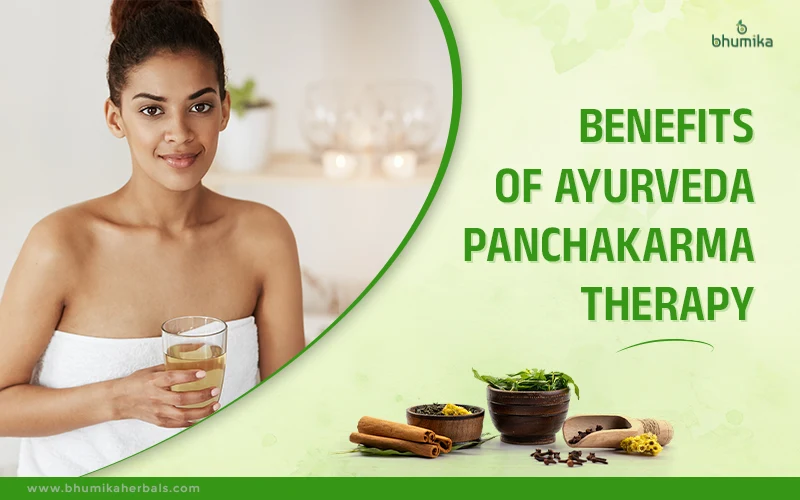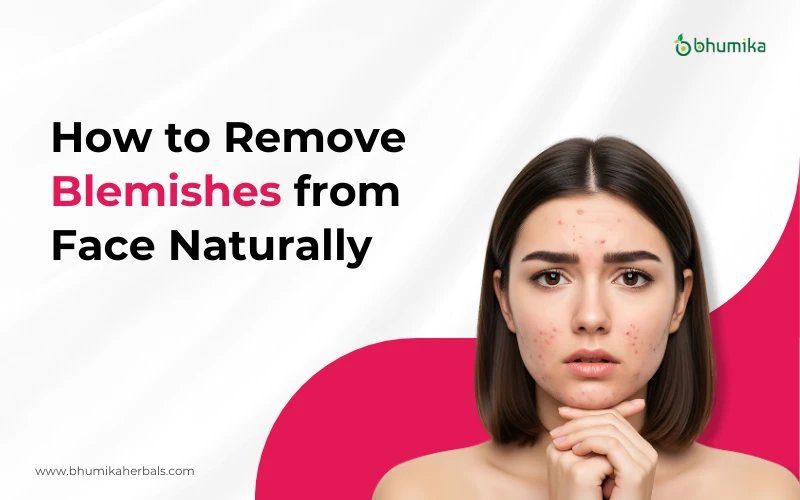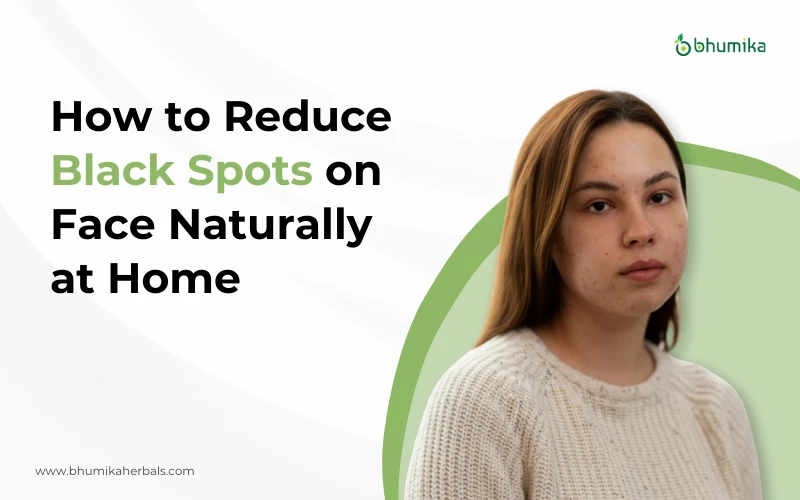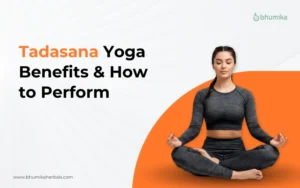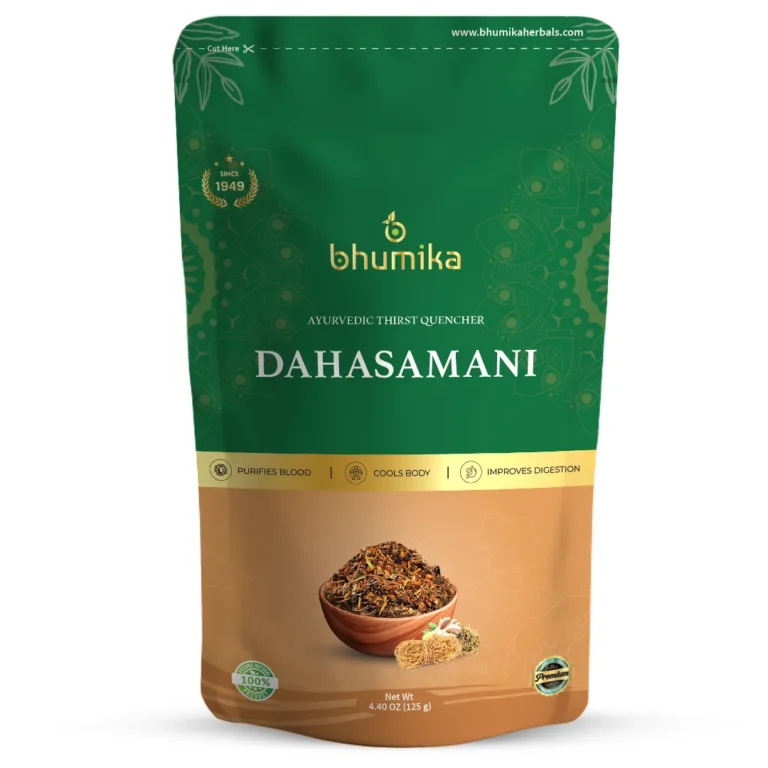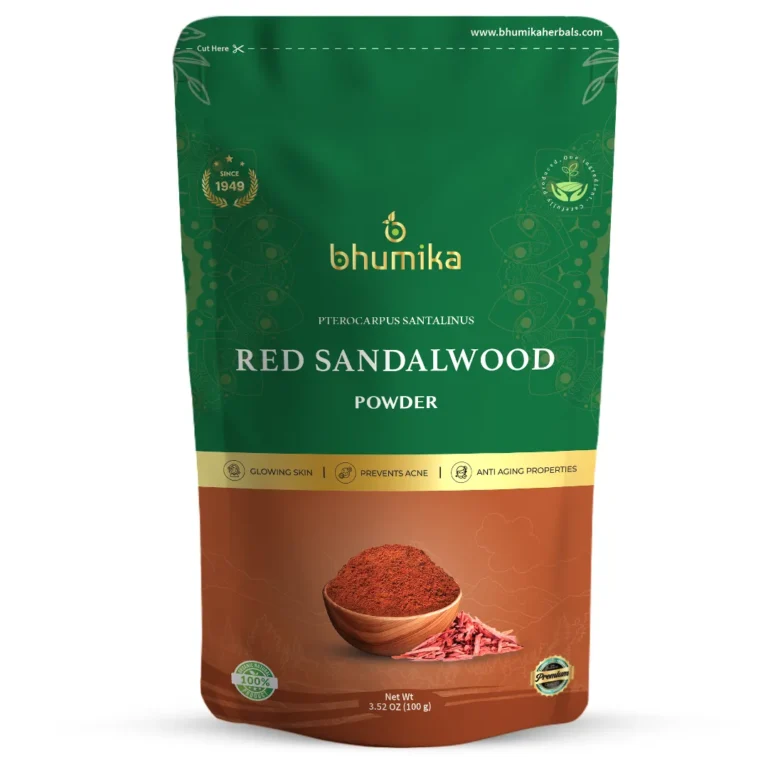Ayurveda Panchakarma – Detox and Heal Naturally
Share this!
Ayurveda panchakarma is an Ayurvedic approach for detoxifying and rejuvenating the body and mind. It originated from the ancient texts of the Charaka Samhita and the Sushruta Samhita. Panchakarma harmonizes the body, mind, and spirit. A holistic approach to healing. Ayurveda panchakarma includes five therapeutic procedures to balance the three doshas: Vata, Pitta, and Kapha.
According to Ayurveda, imbalance in these doshas is considered an unhealthy condition. It disrupts health and leads to disease. Panchakarma focuses on this and eliminates these imbalances through purification. Are you excited to know more about panchakarma? This blog will discuss Ayurveda panchakarma in detail.
| Table of Contents: |
Five Steps of Ayurveda Panchakarma
Panchakarma is based on five therapeutic procedures to balance the three doshas. Here are the five procedures in panchakarma.
1. Vamana (Emesis)
Vamana therapy involves the removal of toxins (inducing controlled vomiting). This step removes toxins from the upper respiratory and gastrointestinal tracts. It is particularly effective for Kapha-related disorders like asthma and chronic bronchitis.
2. Virechana (Purgation)
Virechana employs purgatives to cleanse the gastrointestinal tract. This step is dedicated to the liver and intestines. It is recommended for Pitta-related issues, including skin problems and various inflammations.
3. Basti (Enema)
Basti therapy performs medicated enemas to cleanse the colon and resolve Vata disorders. There are two types: Anuvasana (oil enema) and Niruha (decoction enema). Basti is effective for diseases like arthritis and neurological disorders.
4. Nasya (Nasal Administration)
In Nasya, herbal oils or powders are inserted into the nostrils to clear the head region of the body. The nose is the doorway to the brain and consciousness. This step helps treat disorders like migraines, sinusitis, and respiratory problems. It balances the doshas in the head region.
5. Raktamokshana (Bloodletting)
It is not a commonly practised step. Raktamokshana involves controlled bloodletting to remove toxins from the bloodstream. It is helpful for blood-related disorders and conditions like chronic skin diseases.
Preparation Before Ayurveda Panchakarma
Ayurveda panchakarma therapy begins with Purvakarma (preparatory measures) to loosen and mobilise toxins: Snehan and Svedana.
Snehan
Snehan involves an oil massage, where oil is applied to the whole body using a special massage technique, which helps to move toxins towards the gastrointestinal tract. It also helps to soften both superficial and deep tissues. It leads to stress relief and nourishes the nervous system. Snehan is typically practised over three to seven days, depending on the individual’s needs.
Svedana
Svedana, or induced sweating, follows immediately after Snehan each day. Herbal infusions may be added to the steam to enhance toxin release. Svedana liquefies toxins, promoting their movement into the gastrointestinal tract.
The Necessity of Ayurveda Panchakarma for Health
Stress, environmental pollutants, and unhealthy lifestyle choices are many factors that fill your body with toxins. If it is not eliminated from your body, it will lead to poor health. Panchakarma effectively reverses this degenerative process, providing substantial and lasting benefits. It combines massage, herbal steam treatments, special diets, nutritional guidelines, gentle fasting, and colon therapies to eliminate accumulated toxins from the body.
Your panchakarma programme begins with an Ayurvedic physician’s proper assessment of your health condition. He will design a treatment to meet your specific health needs. There will also be a specialised Ayurvedic diet plan for you. Combined with specific medicinal herbs, which stimulate the liver and digestive organ toxin removal.
Benefits of Ayurveda Panchakarma Therapy
-
Removes Toxins
Ayurveda panchakarma removes accumulated toxins (ama) from the body, purifying the tissues, organs, and bloodstream.
-
Boosts Immunity
Cleansing the body improves the immune system. It makes our body resilient against infections and diseases
-
Proper Functioning of Body Organs
Removing toxins from our body facilitates the proper functioning of body organs and systems.
-
Improves Skin Health
Helping to remove toxins from the body and maintain proper blood circulation after panchakarma can lead to clearer, healthier skin.
-
Reduces Emotional Imbalance
It enhances mental focus and reduces emotional imbalances.
-
Rejuvenates the Body
Removal of different toxins from the body leads to rejuvenation and creates a sense of well-being.
Panchakarma Therapy at Home
It is not encouraged to do panchakarma at home. It needs the supervision of a trained and licensed practitioner. Panchakarma therapy needs to be executed in the proper way. It requires certified practitioners, pure Ayurvedic ingredients, apparatuses, and proper supervision. It is very essential to consult a qualified Ayurvedic physician for guidance. It is better to approach certified Ayurvedic professionals to perform panchakarma.
Dos and Don’ts During Panchakarma Therapy
During panchakarma therapy, Ayurveda suggests following certain lifestyle and dietary guidelines. During panchakarma therapy, your body needs proper rest. It is recommended to avoid exhausting exercise, sexual activity, late-night chilling, loud music, television, and any other stimulating activities. It is also important to stay warm and avoid cold foods and environments.
Ayurvedic panchakarma therapy is performed to revitalise our bodies. By expelling toxins using different Ayurvedic techniques. Are you fed up with the new lifestyle? Are you feeling low? Do you need to escape from this exhausting condition? Then, don’t worry ayurveda panchakarma therapy will bring you back to life. The only thing you should be careful of is to approach a certified practitioner for panchakarma therapy. Surely, this holistic approach will heal you. Are you ready to follow the guidelines? Then, free your body from toxins and let it work properly.
Related Topics
| Ayurvedic Medicine for Knee Pain | Ayurvedic Medicine for Detoxification of Liver |
| Ayurvedic Medicine for Memory | Ayurvedic Medicine for Dark Circles |
Frequently Asked Questions on Ayurveda Panchakarma
What is Ayurveda Panchakarma?
What are the five procedures in Ayurveda Panchakarma?
How does Panchakarma benefit health?
Is Panchakarma safe to do at home?
How long does an Ayurveda Panchakarma treatment take?
Stay tuned with us for similar articles on body care.
About the Author
Vishnu Raj
Related Posts
Honey is a common ingredient available in most households, used...Read More
Tadasana, also known as the mountain pose, is considered the...Read More
Blemishes can appear as dark spots, acne marks, or red...Read More
Have you ever looked in the mirror, noticed those tiny...Read More
Today, we are busy with a hectic lifestyle, and it...Read More
Coriander is a kitchen staple that needs no introduction. Found...Read More
Did you know your skin creates its own natural oil...Read More
Split ends are one of the most common hair problems,...Read More
Share this!
Share this!
Shop by Concern
Acne & Pimples (9) Dandruff & Scalp Itchiness (6) Dark Circles & Puffy Eyes (4) Dead Skin Cells (6) Dehydrated Skin (4) Dry & Damaged Hair (5) Dryness (4) Dry Scalp (6) Dry Skin (4) Dull Skin (8) Excessive Oilness (4) Face Care (9) Fine Lines & Wrinkles (8) Greying (3) Hair Care (8) Hairfall (6) Hair Loss & Growth (6) Hyper Pigmentation (6) Sandalwood Products (3) Skin Brightening (9) Skin Care (8) Stretch Marks (3) Tanned Skin (5) Uneven Skin Tone/ Pigmentation (6) Uneven Skintone/ Texture (5)

